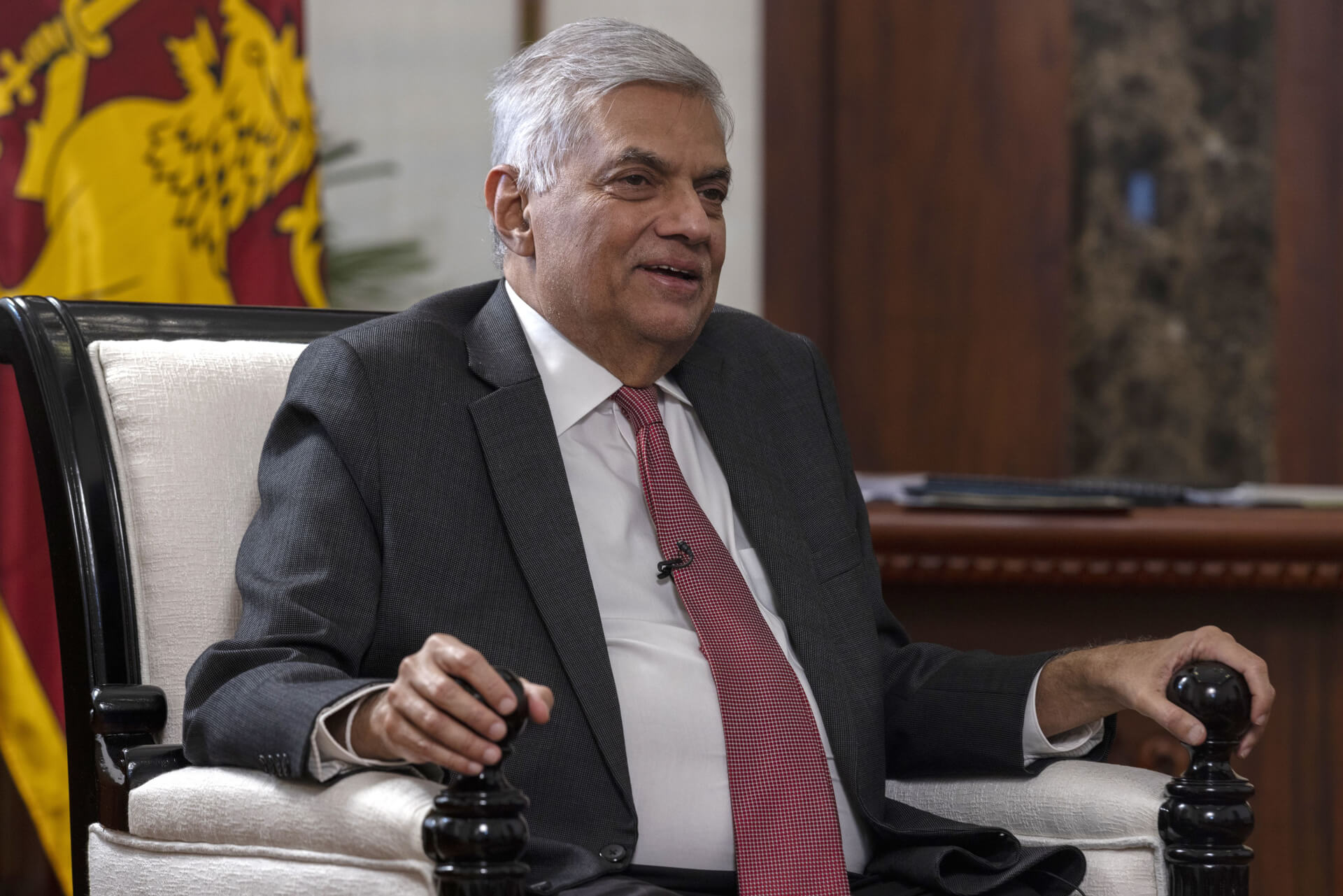On Monday, Sri Lankan President Ranil Wickremesinghe announced that the government will take over the $1.7 billion debt owed to China by three state-owned enterprises—the electricity utility, Port Authority, and Aviation Services.
The president revealed that he has been in talks with American lenders to repay the debt and sell the loss-making companies to restructure its foreign debt.
On the same day, Wickremesinghe announced that the government will also take on the debt owed by the Ceylon Petroleum Corporation to the Exim Bank of China.
Exim Bank of China has given the Ceylon Petroleum Corporation a loan to develop a coal plant, while Sri Lankan Airport Authority and the Sri Lankan Ports Authority were loaned funds to develop the Mattala Airport and the Hambantota Port.
During his budget speech on Monday, Wickremesinghe revealed that the decision to take on this debt is in line with the conditions imposed by the International Monetary Fund for “economic stabilisation” as part of its $2.9 billion rescue package. He noted that it is necessary to “move away from costly monetary financing (money printing) to cover government expenditure in the future.”
According to statistics presented in the budget speech, the government expects to increase revenue from taxes to 3.1 trillion Sri Lankan rupees ($8.5 billion) from 1.3 trillion rupees in 2021.
— Gurbaksh Singh Chahal (@gchahal) November 15, 2022
The IMF deal was contingent on an agreement between Sri Lanka’s lenders to determine details of the debt restructuring. Sri Lanka’s top lenders are India, China, and Japan, with its sovereign debt standing at $35 billion as of 30 June, including $10.9 billion via bilateral loans, $9.3 billion via multilateral loans, and $14.8 billion through commercial loans.
Sri Lanka must repay Japan and India $2.6 billion and $1.49 billion, which respectively account for 24% and 14% of its bilateral debt. However, China is unwilling to give the government concessions for its debt worth $7 billion, 20% of Sri Lanka’s total foreign debt.
The Asian Development Bank, too, has provided $5.11 billion in loans, accounting for 55% of its multilateral debt.
So @RW_UNP budget direction is OK. But unattainable targets on revenue in tanking #SriLanka economy. No focus on expenditure reduction. Woefully inadequate funds for social protection given tripled poverty. No discussion on debt restructuring without which nothing is possible.
— Harsha de Silva (@HarshadeSilvaMP) November 14, 2022
The Executive Director of the Centre of Policy Alternatives, Dr Paikiasothy Saravanamuttu, has raised concern that China’s unwillingness to restructure its debt could prevent Sri Lanka from securing IMF’s $2.9 billion credit facility by early 2023.
If the lenders agree on the terms by December, the IMF will release the funds under September’s staff-level agreement by January or February. To this end, Ranil Wickremesinghe urged the three countries earlier this month to complete debt restructuring discussions by December.
Despite China showing no signs of relenting, Wickremesinghe said in his budget speech that he is optimistic about talks with India and China, saying, “We are confident that a positive outcome will be reached from these talks.”
In a media briefing on Monday, Chinese Foreign Ministry spokesperson Mao Ning said that Beijing has provided socioeconomic support to Colombo “to the best of [its] capacity.” On the debt owed to China,, she said that the government “supports relevant financial institutions in discussing with Sri Lanka and properly resolving them.”
She also reassured that China will play a “constructive role in easing Sri Lanka’s debt burden and realising sustainable development.”
Sri Lanka's imports are down 30% in the last 6 months. This is domestic demand compression on par with big crises like Mexico 1995, Indonesia 1998, or Argentina & Turkey in 2018. Only way out is IMF program approval upon progress on debt restructuring. pic.twitter.com/Kus4K4nMgG
— Sergi Lanau (@SergiLanauIIF) November 10, 2022
Meanwhile, India has previously provided $4 billion in assistance to help Sri Lanka secure essential commodities like fuel, food, and medicines. However, in September, an Indian official quoted by Reuters said that New Delhi does not plan on giving any further assistance.
Wickremesinghe revealed in his speech on Monday that state revenue dropped to 8.3% of the GDP in 2021, the “lowest in the world.” The government also defaulted on $51 billion worth of foreign debt in April.
Wickremesinghe expressed confidence that the measures announced in the budget would ease the financial crunch by the end of 2023. His policies focus on raising government revenue by increasing international trade as a percentage of GDP by over 100% and bringing in $3 billion in foreign direct investment in the coming ten years in order to achieve a growth rate of 7-8%.

